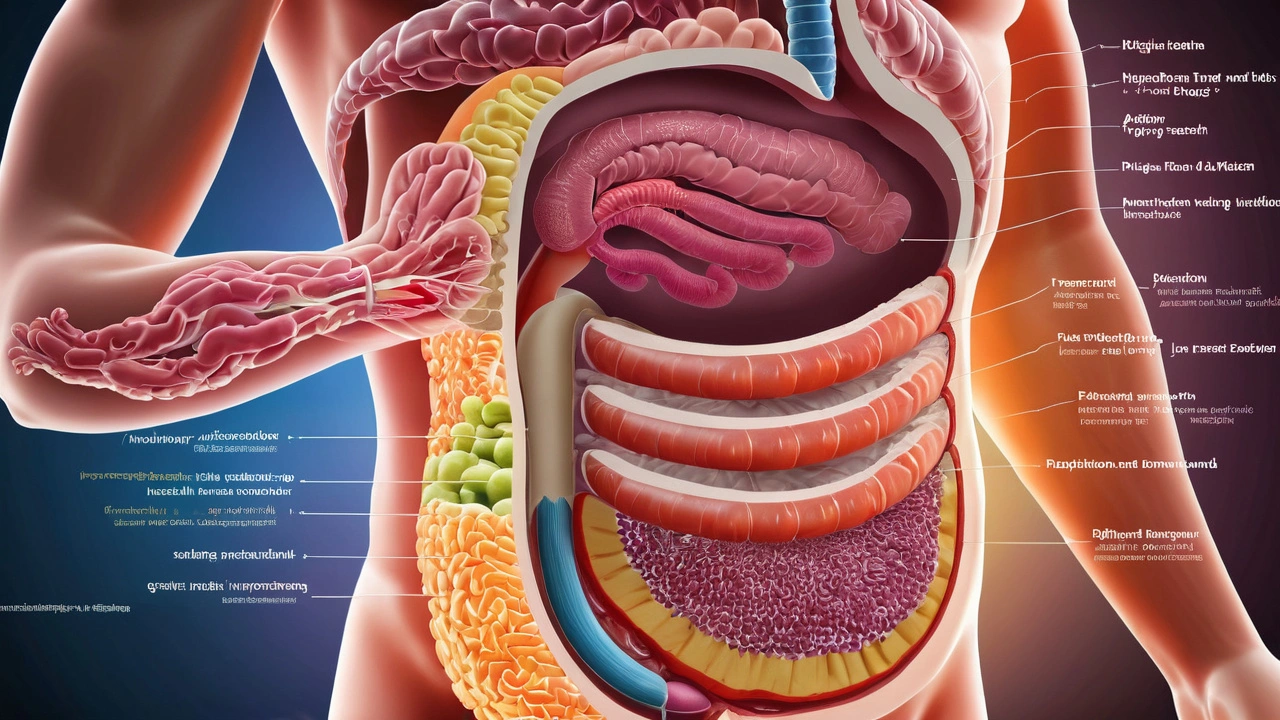Gut issues are annoying and slow you down. Instead of gimmicks, try small habits you can keep. This page gives clear, practical steps to ease digestion, reduce bloating, and keep energy steady without strict diets or expensive supplements.
Where and how you eat matters as much as what you eat. Slow down and chew well. Aim for at least 20–30 chews per bite so food arrives easier to your stomach. Try to sit at a table, avoid screens, and breathe before you start. Mindful eating helps digestion and prevents overeating.
Focus on fiber from whole foods. Vegetables, fruits, whole grains, beans, and nuts feed the gut bacteria and improve stool regularity. Add a serving of vegetables at every meal and swap white bread for whole grain options. Increase fiber gradually and drink more water to avoid gas.
Drink water, not at the last second. Sipping water through the day keeps digestion moving and helps absorb nutrients. Aim for water between meals rather than chugging during a big meal. Warm drinks like green tea or herbal tea after a meal can soothe your belly.
Include probiotics and fermented foods. Yogurt, kefir, sauerkraut, and miso contain live cultures that support healthy gut microbes. If you try a probiotic supplement, pick a trusted brand and watch for changes in symptoms for a few weeks. Prebiotics matter too—bananas, garlic, onions, and oats feed good bacteria.
Move your body. Light activity after eating, like a 10 to 20 minute walk, speeds stomach emptying and reduces bloating. Regular exercise changes gut microbes in a positive way and helps with weight control, which also eases digestion.
Manage stress and sleep. Stress tightens your gut and can cause stomach pain, diarrhea, or constipation. Short breathing exercises, brief walks, or calming hobbies cut stress quickly. Poor sleep worsens gut symptoms, so aim for a steady sleep schedule and a dark, cool bedroom.
Watch triggers and timing. Fatty, fried, and highly processed foods can slow digestion for many people. Spicy meals, caffeine, and alcohol may irritate some stomachs. Keep a short food log for two weeks to spot patterns. Eat smaller, regular meals if large plates cause reflux or bloating.
Know when to see a clinician. If you have severe pain, unexplained weight loss, blood in stool, or persistent changes in bowel habits, get medical advice. Simple tests can rule out infections, inflammation, or other conditions that need treatment.
Try one change at a time and give it a few weeks. Small, consistent adjustments are easier to keep and usually beat short-term fixes. Better digestion starts with clear, doable habits you can repeat every day.
Try small food swaps: swap sugary snacks for a piece of fruit with a handful of nuts, choose oats or yogurt for breakfast, and blend greens into a morning juice. These swaps keep blood sugar steady, feed your gut, and cut cravings. Track how each change feels after two weeks carefully.

Digestive health is an integral part of our well-being, influencing everything from our energy levels to our mental clarity. Understanding the intricate workings of our gastrointestinal system can help us make better dietary choices, prevent common ailments, and promote overall body wellness. This article delves into the core aspects of gastro health, unpacking useful tips and fascinating facts to guide you towards nurturing your digestive system. Empower yourself with knowledge to transform your gut health today.
Read More
Achieving optimal gastrointestinal health is key to feeling your best day-to-day. Integrating the right foods into your diet can make a world of difference for your digestive system. This article provides insights on ten essential foods that can significantly boost your gut health, with practical tips for incorporating them into your daily meals.
Read More
The digestive system plays a crucial role in our overall health that often goes unnoticed. This article delves into the importance of maintaining good gastro health, highlighting its impact on our immune system, mental well-being, and energy levels. Readers will find practical tips for fostering a healthy gut, including dietary recommendations and lifestyle changes. By understanding the significance of gastro health, we can make informed choices to improve our overall well-being.
Read More